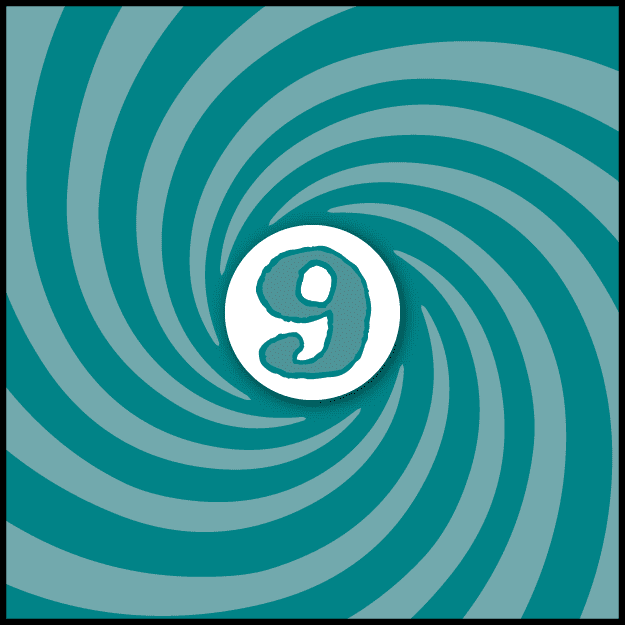Those of us who want to identify our Enneagram types correctly, as well as those of us who guide others, have a common intention: accuracy! But too often, one phrase or statement reminds us of one of the types in particular. As a result, we end up thinking This is it! A closer examination or inquiry into such statements often reveals a type other than what we first imagined.
In this series of 9 blogs, I take one statement we might easily associate with a particular type, but then use a lucid probing technique, which involves two specific questions that uncover the true meaning of the statement. It works like this. First, ask a question to explore the meaning of the statement, rather than making an inference from the statement. Second, explore the underlying drive or motivation beneath the statement.
Lucid Probing
1st Explore the meaning of the statement
What does ____ mean to you?
2nd Explore the underlying motivation for the statement
What causes you to _____?
The Statement | “I can’t stand conflict.”
This statement sounds like a type 9, but is it? Yes, Nines have difficulty tolerating the tension that conflict brings, but who likes it? And conflict – really, the perception of what is and is not conflict – comes in nine different forms.
Type 9
1st Explore the meaning of the statement
What does “I can’t stand conflict” mean to you?
What a Nine might say
“I’ve never been able to stand conflict. It makes me really tense. When it’s between others, I’m good at mediating it. When it’s between me and others or it’s conflict that doesn’t get resolved, I can’t stand it.”
2nd Explore the underlying motivation for the statement
What causes you to “not be able to stand conflict”?
What a Nine might say
“I just want everyone to get along and respect each other. When this isn’t the case, I get very tense and actually can feel the tension in my body. Conflict disrupts harmony between people.”
Yes, the answers appear to suggest this person might be an Enneagram Nine. However, without the inquiry of Lucid Probing – that is, if the initial statement “I can’t stand conflict” was taken at face value and it was assumed to be an Nine statement – an unintentional wrong typing identification is possible. Here are some other types that might easily have made the statement “I can’t stand conflict.”
The Statement | “I can’t stand conflict.”
Type 6
1st Explore the meaning of the statement
What does “I can’t stand conflict” mean to you?
What a Six might say
“I don’t like conflict at all. I want people to support each other. I don’t like people mad at me. I don’t like people mad at each other. And I don’t like feeling angry at someone else.”
2nd Explore the underlying motivation for the statement
What causes you to “not be able to stand conflict”?
What a Six might say
“I don’t really know. Maybe I think something very bad will happen if conflict arises and doesn’t get resolved. When I feel angry with someone – and I do sometimes – I feel guilty about it, even if I feel very angry.”
The Statement | “I can’t stand conflict.”
Type 2
1st Explore the meaning of the statement
What does “I can’t stand conflict” mean to you?
What a Two might say
“I feel uncomfortable when people are angry with each other. I want it to go away so people can relate better. I really don’t like conflict, although I know that people get upset with each other for a variety of reasons.”
2nd Explore the underlying motivation for the statement
What causes you to “not be able to stand conflict”?
What a Two might say
When I am angry with someone or someone is angry with me, I worry that addressing the conflict may sever the relationship. The only exception is if I am angry at some or they are angry with me and I don’t really like the person. Then I care a lot less, if at all.”
The Statement | “I can’t stand conflict.”
Type 7
1st Explore the meaning of the statement
What does “I can’t stand conflict” mean to you?
What a Seven might say
“Conflict is just so negative. Why be negative when you have other choices”?
2nd Explore the underlying motivation for the statement
What causes you to “not be able to stand conflict”?
What a Seven might say
“That’s a very good question. I like to keep things upbeat and moving. When people are highly emotional, I’m not sure what to do. I can usually see the good side of most things and events.”
The above three examples are simply samples. Many Enneagram types might say “I can’t stand conflict,” but their reasons would be different!
Ginger Lapid-Bogda PhD, the author of seven Enneagram-business books, is a speaker, consultant, trainer, and coach. She provides certification programs and training tools for business professionals around the world who want to bring the Enneagram into organizations with high-impact business applications, and is past-president of the International Enneagram Association. Visit: TheEnneagramInBusiness.com | ginger@theenneagraminbusiness.com



